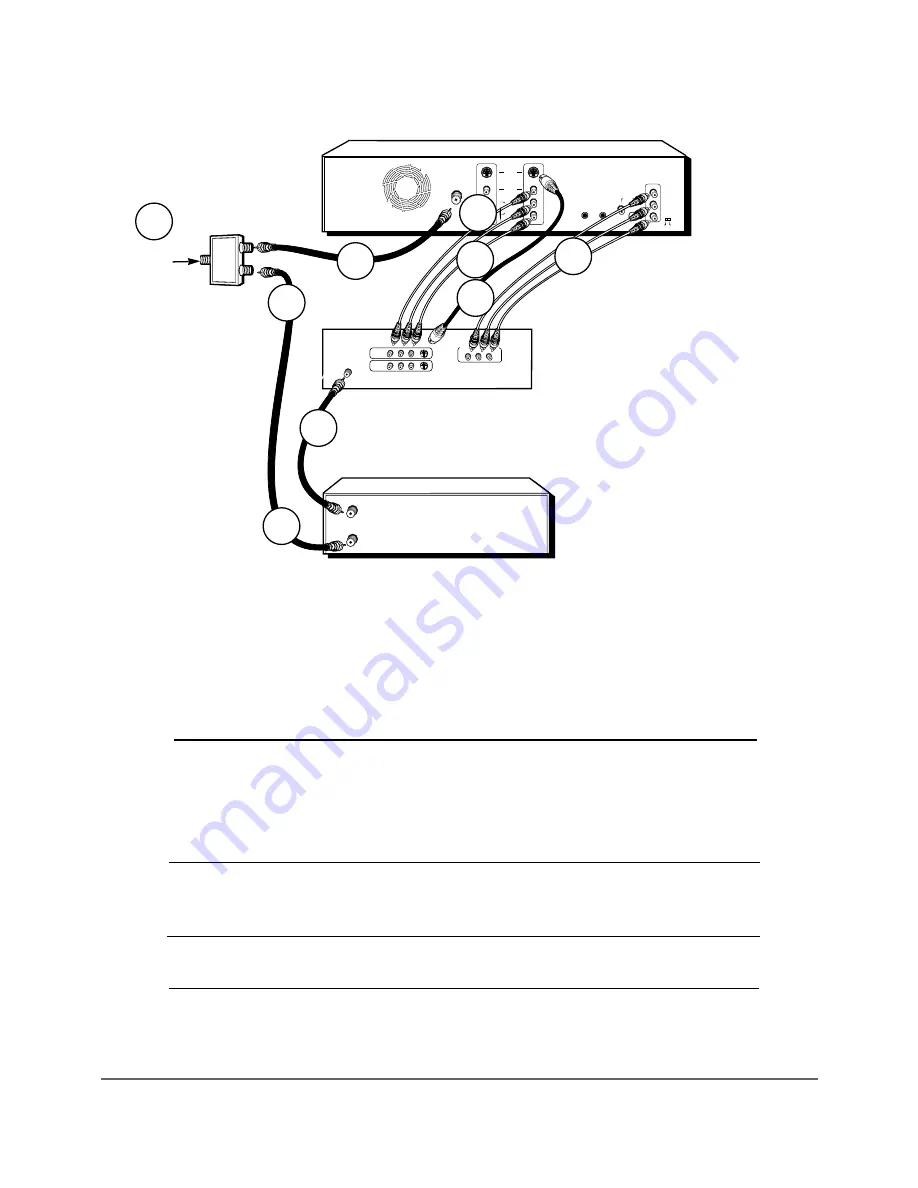
Chapter 1: Connections and Setup
4
OPTICAL
COAXIAL
DIGITAL AUDIO
COMPONENT
VIDEO OUTPUT
Y
Pb
Pr
ON
OFF
OUTPUT
INPUT
S-VIDEO
COMPOSITE
VIDEO
AUDIO
RF ANTENNA/CABLE
INPUT
G-LINK
IR SAT
L
R
L
R
PROG.
SCAN
VIDEO
L
R
INPUT1
INPUT2
S-VIDEO
Y
P
B
P
R
COMPONENT VIDEO INPUT
CABLE/ANTENNA
TV
DVD RECORDER
VCR
OUT TO TV
IN FROM
ANTENNA
RF SIGNAL
SPLITTER
m Cable Line
Details about the different kinds of
cables used to connect your Digital
Media Recorder are on page 56.
If you connect your components as described, you must access different Video Input Channels on your TV to see
programming— whether the programming is a regular TV show, a program you saved to the Digital Media
Recorder’s hard disk drive, a videotape you’re playing in the VCR, or a disc you’re playing in the Digital Media
Recorder. If you don’t know how to access Video Input Channels on your TV, go to page 16 for help. A general
explanation, based on the connection shown above, follows:
To watch one program while you record
another:
To play a disc or a show you’ve
recorded to the Digital Media
Recorder’s hard disk drive:
To play a videotape:
Tune the TV to its Input 1 channel or Vid 1 channel
Tune the Digital Media Recorder to the channel you want to record,
and press RECORD.
Use the buttons on the TV (or the TV’s remote control*) to tune to the
channel you want to watch — you won’t be able to pause live TV
because you aren’t watching TV through the Digital Media Recorder.
Tune the TV its Input 1 channel or Vid 1 channel.
Tune the TV to the VCR input channel (usually channel 3 or 4).
If you need help finding your TV’s various Video Input Channels, go to page 16.
* The remote control packed with your Digital Media Recorder is capable of being programmed to operate many brands and
models of TVs and VCRs. For instructions, go to page 19.
Signal from cable or
off-air antenna
2
2
3
3
3b
3b
3c
3c
The back of your TV might look
different than the one pictured here.
The back of your VCR might look
different than the one pictured here.
4a
4a
4b
4b
4d
4d
4c
4c
1
1





















